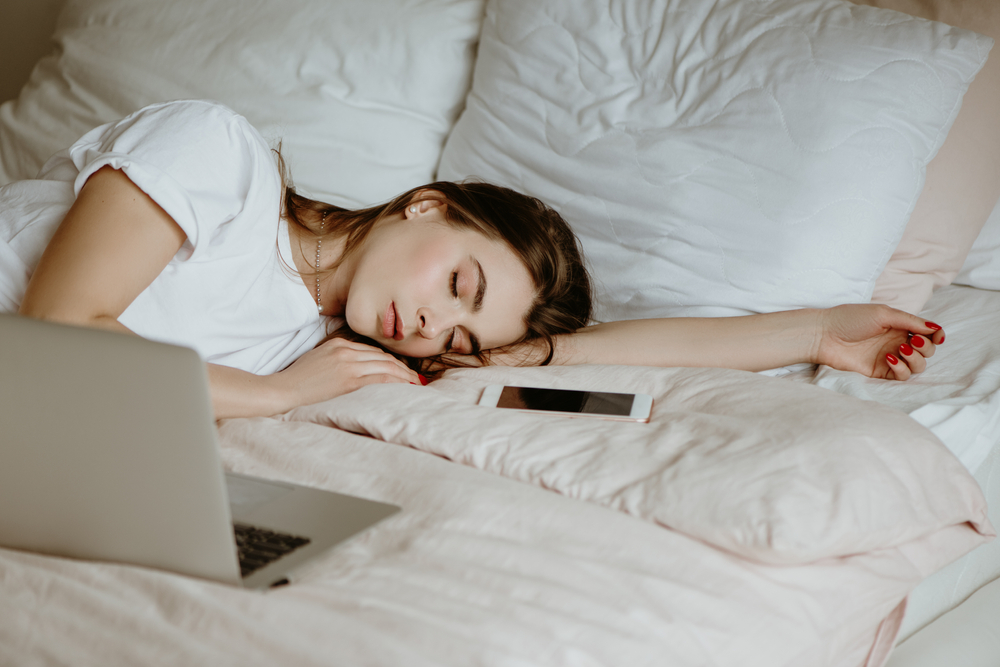Hormone imbalances are common. On a daily basis, women are dealing with different types of hormone imbalances that they may or may not be aware of. It is so important to be in tune with your body and listen to what it is telling you. Specific to today’s discussion, I’d like to discuss the importance of sleep to help those who suffer from HPA-axis dysfunction. Let’s start by defining what that is. HPA-axis dysfunction is the medical term for adrenal fatigue. When the HPA-axis functions normally, it releases a large level cortisol in the body in the morning and then a much lower level in the evening. However, if you are under stress, your stress levels can cause a malfunction in this process, and an unhealthy amount of cortisol is released in the body. Your adrenals are no longer able to respond to the hormone ACTH, which is the hormone that stimulates the adrenals to release the cortisol. Your body is now working in overload to break down the influx of cortisol quickly and you start to receive too little cortisol in the morning and too much cortisol in the evening…opposite of what is healthy. This can cause some necessary body functions such as sleep, digestion, growth and reproduction, to slowly shut down. Think of it as a car with a failing engine…sooner or later, it will no longer be able to run… and this is all caused by too much stress.
There are a number of ways to relieve stress, which could take pages and days to go through! But today, I want to focus on the necessary need for proper rest in order to help with stress levels. Proper sleep and restful behaviour are necessary in order to lower stress levels and therefore get in control of your cortisol levels.
With rest and sleep, it is important to work slowly to crowd out bad habits and develop new ones that are consistent. Sleep is necessary to help support the adrenal fatigue – it will relieve the brain fog, short attention span, daytime fatigue and lack of function – all symptoms of HPA-axis dysfunction.
Here are 6 steps that will help you get a restful sleep. They seem simple, but don’t mistake simplicity with importance. They are vital.
Have a regular bedtime – The body is a machine that has many functions, based on rhythms and signals. If is stays in routine, it will start to tick on its own. A routine will allow the body to prepare for its sleep cycle. Implementing a bedtime may be hard at first. I always suggest to my clients to set a reminder on their phones and to title the reminder “Wind down.” This is also the time that you put your phone away, which goes into my next step.
Limit exposure to electronics – The body is designed to work that you go to bed when it’s dark, and wake up when it’s light. Blue light, which is the light that you are exposed to from electronics, stimulates the brain and can keep you up longer than you should be. The constant exposure to this light can result in less energy and a slower metabolism the next day. My suggestion is to try to avoid electronics 2 hours before bedtime. If work does not permit you to do this, reduce the blue light on your electronics if possible. Or you can also purchase blue light-shielding glass (aka – blue blockers). There are even facials creams that help your skin fight against the negative effects of blue light – but that’s another article! Another question with electronics to ask is what you are focusing on while using them. Studies have shown that social media sites are known to spark anxiety and can even lead to cases of depression. I encourage you to limit your exposure to electronics, as re-think what you use your electronics for. Think about it like this…would you consider having an espresso right before bed if you needed rest? No! Think of your electronics at night as being just as powerful as an espresso.
Stop eating a few hours before bedtime – When you eat, it sparks your digestive system. Eating at night can create blood sugar imbalances, which in turn disturbs your sleep patterns. Stop eating 2 to 3 hours before bedtime, if possible.
Create a bedtime ritual – Set soothing tones for your sleep. Set the stage for how you want to feel when you get into bed. What your body needs is a signal that it’s the end of the day and it’s now time to relax. This can be something simple and short, like reading just a few pages of a book each night or spending more time for yourself by taking an epson salt bath. The act of defusing oils, taking time to journal and/or meditate, drinking warm tea or taking a few minutes to stretch – they all make a difference. Remind yourself that you must do one of these activities before getting under the covers.
Exercise early in the day – Exercise is great for a healthy routine and sleep pattern…but try to avoid working out right before bedtime, unless it is low-intensity yoga or stretching. Exercise right before sleeping can increase cortisol levels, which may not allow you to sleep throughout the night and can also cause your blood sugar levels to dip too low. If your work does not permit you to work out earlier in the day, at least try to work out before dinner, rather than after.
Avoid alcohol and caffeine – Caffeine stimulates the adrenals. If you need to cut coffee intake, start off by trying half caffeine/half decaffeinated, as going cold turkey may cause headaches! You can also consider switching to herbal teas. Alcohol interferes with your REM sleep (hence- when you have dreams), and this dream-time is important for adequate rest. Try to avoid excess alcohol, especially those with too much sugar.
words by Bianca Kamhi
Livingwithbianca.com
READ MORE
Has The Pandemic Made You More Anxious? Psychotherapist Shares Her Tips














